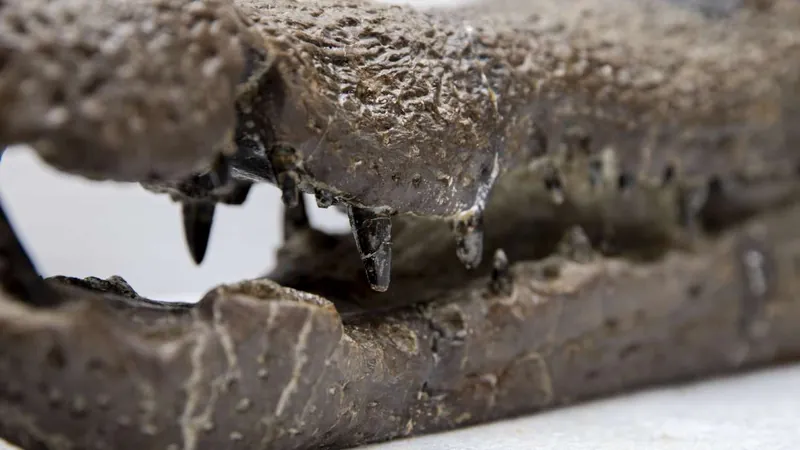
Unlocking the Secrets of Survival: How Crocodiles and Alligators Outlasted Extinction Events
2025-04-19
Author: Yan
SALT LAKE CITY — Earth has weathered at least five catastrophic mass extinction events, yet some resilient species have thrived through them. New research from Utah sheds light on the remarkable survival of crocodiles, alligators, and gharials, offering crucial insights into how species might endure future environmental upheavals.
Leading the study, Randy Irmis, curator of paleontology at the Natural History Museum of Utah and a professor at the University of Utah's Department of Geology and Geophysics, reveals that adaptability is key. These ancient reptiles, which roamed the land, thrived due to their generalized diets that included not just meat but also insects and small crustaceans.
"Species with flexible eating habits and adaptable living conditions were the ones that survived these mass extinction events," Irmis explained. In contrast, specialized creatures faced a greater risk of extinction.
The research team's findings, published in *Palaeontology*, mark the culmination of nearly ten years of rigorous study. Lead researcher Keegan Melstrom initiated the project during his doctoral studies under Irmis’s guidance, focusing on how diet influences the dental complexity of reptiles over millions of years.
While past studies predominantly emphasized invertebrates, this team explored the evolutionary impact of mass extinctions on vertebrates, especially in relation to dietary habits. They meticulously analyzed the skull shapes of nearly 100 extinct crocodylomorphs and an additional 20 extinct crocodylians over the last 200 million years, correlating findings with over 100 extant mammal and lepidosaur species.
The extensive data collection required Melstrom to travel to museums around the globe, poring over fossil evidence to reach distinct conclusions. "Extinction and survivorship are two sides of the same coin," Melstrom remarked. "Some groups remarkably persist and diversify through these crisis points in history. What can we glean by examining the evolutionary lessons from these vital events?"
A surprising revelation emerged: the importance of dietary flexibility wasn't only a survival trait for mammals but also for crocodilians. Existing research had focused on mammals during catastrophic events, but this new study highlights similar patterns among reptiles.
Looking ahead, future research may delve into other fossil remnants or explore additional reptile species from this period.
Crucially, this study also provides a lens into the future for crocodilians amidst modern threats like habitat destruction. While today’s crocodile species maintain a flexible diet, their survival hinges on conservation efforts to protect their habitats from human-related pressures.
"Crocodiles are incredibly adaptable if we allow them the opportunity," Irmis emphasized. "Ensuring their longevity is about preserving their natural environments and preventing overhunting to the point of extinction."




 Brasil (PT)
Brasil (PT)
 Canada (EN)
Canada (EN)
 Chile (ES)
Chile (ES)
 Česko (CS)
Česko (CS)
 대한민국 (KO)
대한민국 (KO)
 España (ES)
España (ES)
 France (FR)
France (FR)
 Hong Kong (EN)
Hong Kong (EN)
 Italia (IT)
Italia (IT)
 日本 (JA)
日本 (JA)
 Magyarország (HU)
Magyarország (HU)
 Norge (NO)
Norge (NO)
 Polska (PL)
Polska (PL)
 Schweiz (DE)
Schweiz (DE)
 Singapore (EN)
Singapore (EN)
 Sverige (SV)
Sverige (SV)
 Suomi (FI)
Suomi (FI)
 Türkiye (TR)
Türkiye (TR)
 الإمارات العربية المتحدة (AR)
الإمارات العربية المتحدة (AR)